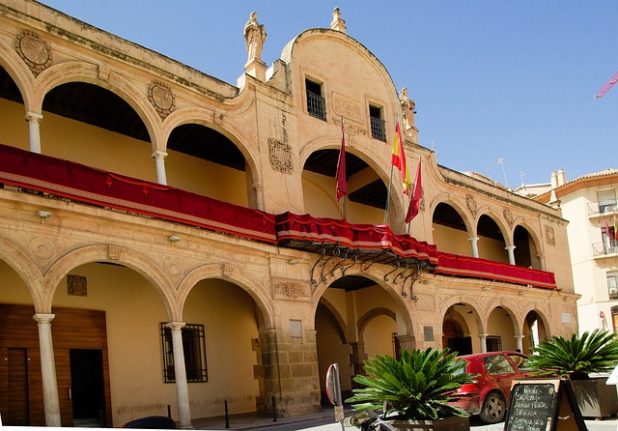The padrón certificate is an essential document in Spain. It basically proves where you are living, and your town hall – or ayuntamiento – uses it to find how many people are living in the area and what their ages are. How much money your local town hall will receive from the government will depend on the number of people living in each area
If you are a foreign resident in Spain, you will need to renew your padrón registration every two or five years, but note that this is different from the padrón certificate you receive when you first register.
The certificate is only valid for three months, so if you need to show your certificate for any reason, you will need to ask for another one at your town hall if it’s older than three months.
If you have kids of school age, your children will be assigned a school district depending on where you live and where you are registered on the padrón, and it is necessary for things like for registering at your local health centre, getting a Spanish driving licence, voting in elections (if you’re eligible), applying for a local library card, and getting a pensioner’s card.
READ ALSO: Padrón: 16 things you should know about Spain’s town hall registration
Why would someone have a fake padrón?
So, you might be wondering why someone would bother having a falso padrón? Well, the answer is pretty simple: to gain a benefit or advantage.
It is not uncommon in Spain for people to register their living address as somewhere (say a cousin or friend’s house) in order to get their kids into a better school, for example.
Then there’s the fact that being empadronado in either the Canary Islands or the Balearic Islands can get you discounts of 70 percent on flights between mainland Spain and the islands.
It is also quite common to hear of people having a padrón in another part of Spain for tax purposes as many taxes in Spain levied on a regional level, meaning there could theoretically be tax advantages of being registered as living in another region.
Furthermore, in 2022 Spanish national police investigated and arrested British citizens in the Canary Islands who allegedly forged padrón documents in order to gain residency status in Spain after Brexit.
READ ALSO: Britons investigated for using fake documents to stay in Spain after Brexit
It’s also sometimes done for administrative or legal purposes, particularly when trying to gain the residency or tax benefits that come with being in a domestic partnership, something known as pareja de hecho in Spanish. Often people will register themselves as living with someone (their fake boyfriend or girlfriend) in order to get the pareja de hecho and residency rights in Spain.
What are the penalties for having a fake padrón in Spain?
If you’re caught with a fake padrón, it will generally be considered an administrative offence rather than a criminal offence and you’ll be fined accordingly, depending on the size of the municipality where you are registered.
Doing something like this would only really become a proper criminal offence if it was done a large, organised scale (like the padrón criminal groups mentioned above) and contravening articles 390 and 392 of the Spanish penal code, which deals with things like falsifying public documents and if the person issuing the padrón (so the worker in the town hall) was also part of the scam.
READ ALSO: Can I get my padrón online in Spain?
How much is the fine for false registration?
If you are caught, you’ll be given a fine (multa in Spanish). According to Royal Decree 1690/1986, which outlines the fine structure, you’ll be fined:
€150 in municipalities with more than 500,000 inhabitants.
€90 in a municipality of 50,001 to 500,000 inhabitants.
€60 in municipalities of 20,001 to 50,000 inhabitants.
€3 in those from 5,001 to 20,000 people.
A non-specified fine of less than €3 in municipalities of less than 5,001 people.
However, where the fines really ramp up is in cases of registering in the padrón when you are living illegally in Spain, usually done in order to try and later regularise your immigration status in order to get residency.
For a more serious offence like this, the fine can be as much as €10,000.
What if I move between municipalities?
But what if you move frequently between different parts of Spain or are lucky to have different properties in different municipalities?
According to Article 63 of Royal Decree 1690/1986: “Whoever alternately lives in several municipalities must register in the one in which he or she lived for the longest time per year.”
READ ALSO: Everything you have to update when you change address in Spain



 Please whitelist us to continue reading.
Please whitelist us to continue reading.
Member comments